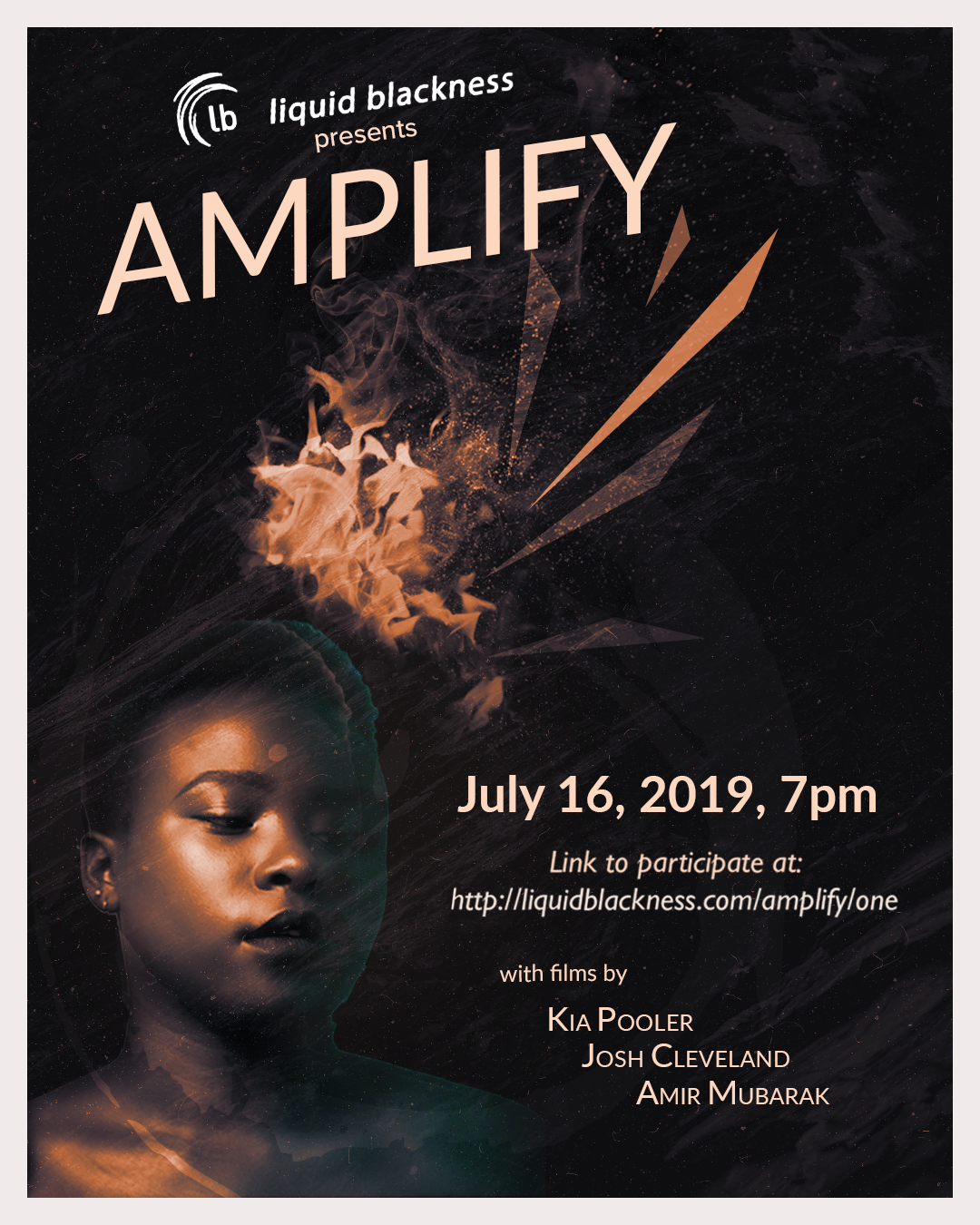
AmplifyOne
Amplify One, a screening & conversation with films by GSU students Kia Pooler, Josh Cleveland, and Amir Mubarak
Moderated by Sade Lythcott, CEO of The National Black Theatre Institute of Action Arts in Harlem USA
A curated conversation series centered in films and writings, Amplify showcases emerging radical cinematic aesthetics which advocate, protest, reflect, heal, empower, affirm, uplift and cultivate community. Responding to our students’ voices and works, AMPLIFY seeks to foster artistic and critical dialog around systemic anti-Blackness as a place for the articulation of liberatory demands.
July 16 @ 7pm on Zoom and streaming on liquid blackness YouTube channel and Facebook page.
More info forthcoming soon.
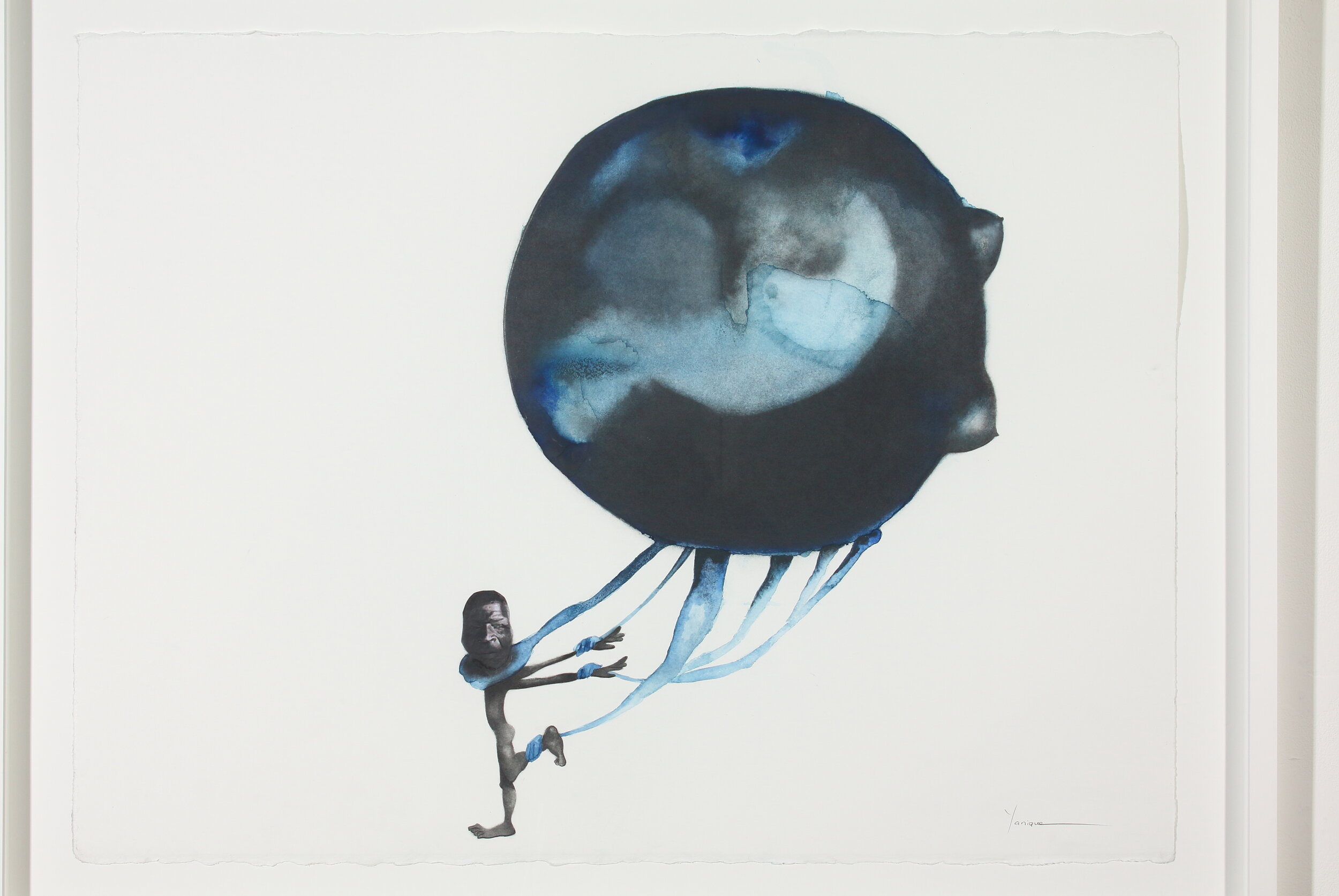
MISSION STATEMENT
liquid blackness project’s mission statement: to mentor the next generation of scholars of color and other scholars fully committed to the agenda of Black Studies, while creating a vibrant, extended, and sustainable community.
The liquid blackness project is entirely committed to the aim and scope of Black Studies: centering on Blackness—black people and black art—and critiquing Western civilization’s attachment to the project of whiteness. As we condemn the atmospheric reach of anti-blackness, we also make the rejection of white supremacy and privilege the goal of our scholarly pursuits.

liquid blackness JOURNAL JOINS DUKE UNIVERSITY PRESS
The liquid blackness journal founded in 2014 at Georgia State University by faculty member Alessandra Raengo and members of the liquid blackness research group — doctoral students Lauren McLeod Cramer, Cameron Kunzelman, and Kristin Juarez – will join Duke University Press’s publishing program in Spring 2021. Raengo and Cramer are the journal’s editors-in-chief. The revamped open access liquid blackness: journal of aesthetics and black studies will devote its first three issues to the foundational concepts of “Liquidity,” “Blackness,” and “Aesthetics,” initially examined in the journal’s second issue in 2014.Please see Duke University Press announcement here
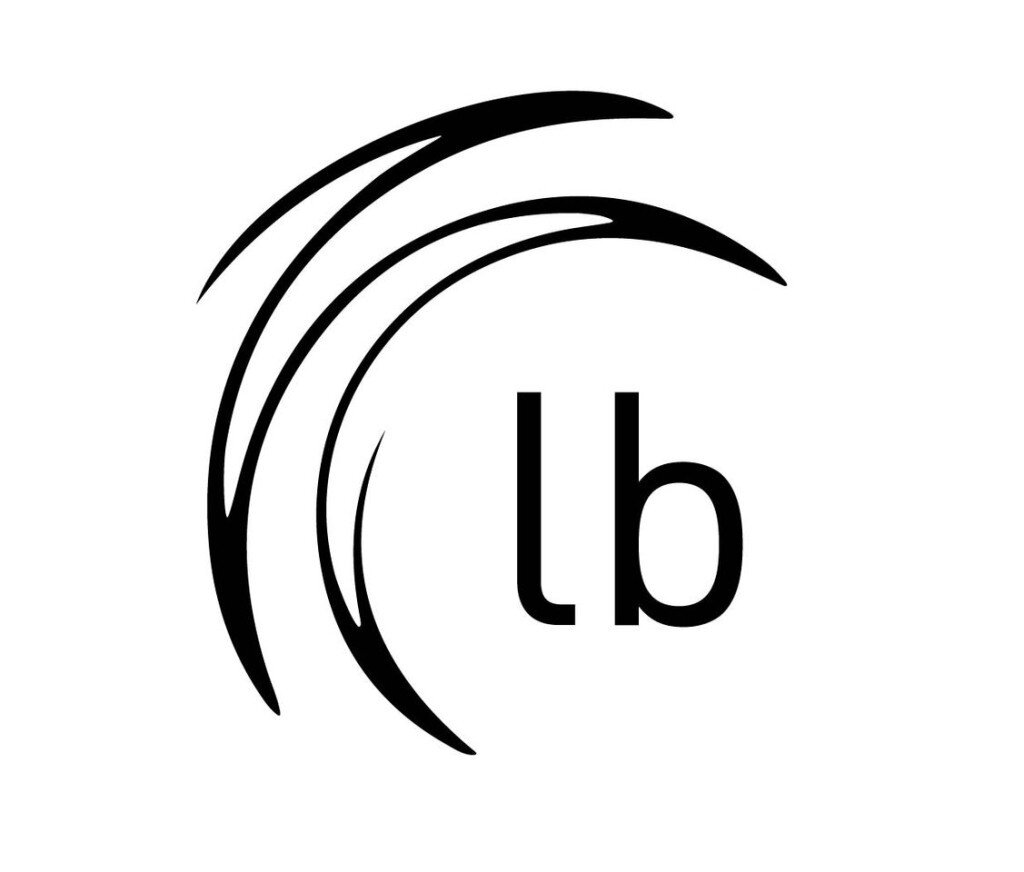
CALL FOR PAPERS: LIQUID BLACKNESS JOURNAL 6.1 “AESTHETICS”
The Editorial Board has planned the first three themed (and foundational) issues, on the following concepts:
“liquidity” – Vol 5 no. 1 – Spring 2021
“blackness” – Vol 5 no. 2 – Fall 2021
“aesthetics” – Vol 6 no. 1 – Spring 2022
After two foundational issues devoted to “liquidity” and “blackness,” we now turn to our third concept, “aesthetics,” to explore its radical potential for Black Studies. We are inspired by Fred Moten’s posing of black aesthetic sociality as a problem for ontology, and appositional to epistemology and phenomenology. Moten’s insistence on the irreducible vitality of black sociality has been both inspirational and aspirational to the theoretical foundation, the ethics, and the praxis that sustain this journal. His aesthetic thinking and practice—we hesitate to call it a “theory”—unravels in a multitude of ways throughout his long career as poet, theorist, philosopher, art critic, and through his engagement with an extraordinarily rich, varied, and unruly archive.
Inspired by this capacious model of practice and the ways Moten’s work radically upends traditional distinctions between ontology, phenomenology, epistemology, and aesthetics, we offer below some concepts that have appeared in his recent trilogy “consent not to be a single being” to invite contributions that engage with, and might enrich, the theoretical, methodological, and artistic archives mobilized in Moten’s work, or, conversely express skepticism and offer criticism.
We take this opportunity to explore the expansive possibilities of “aesthetic thinking” broadly conceived, and investigate who can do theory (scholars, artists, activists…), how theory can be done (in image, writing, archiving, curating, social activism…), and what a Black aesthetic object is (“high”/“low” art, sound and image, practice and praxis, the work of individual artists and ensembles…).
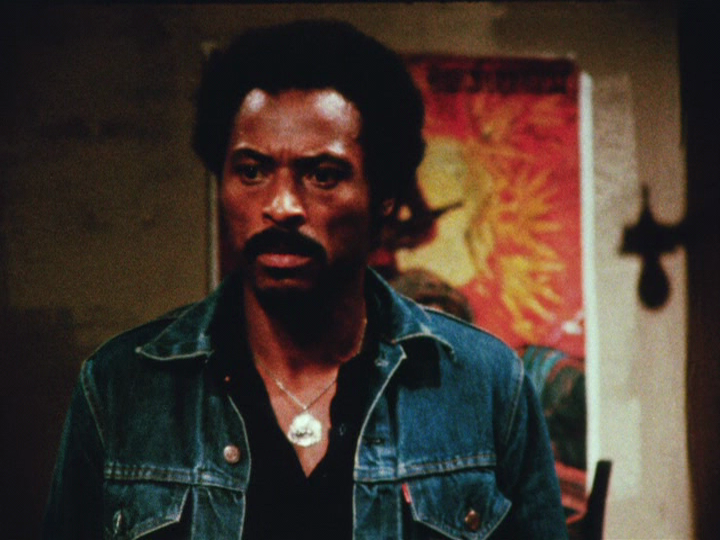
IN MEMORIAM: NATHANIEL TAYLOR, 1938-2019
liquid blackness mourns the passing of actor, Nathaniel Taylor (March 31, 1938 – February 27, 2019). Although best known for the role of Rollo on the popular television series, Sanford and Son, Taylor was also an important film actor within the L.A. Rebellion group, starring as Jita Hadi in Larry Clark’s As Above, So Below (1973) and as Warmack in Clark’s Passing Through(1977). A member of PASLA (Performance Arts Society of Los Angeles), Clark’s and Taylor’s collaboration in Passing Throughwas just as intense and mutually inspiring as the filmmaker’s collaboration with musician Horace Tapscott who provided part of the score and appeared in the film.

PROFILES OF POET-SCHOLAR, FRED MOTEN
In an engaging profile of poet-scholar Fred Moten recently published in Art News, Adrienne Edwards, curator of performance at the Whitney Museum remarks on the importance of Moten’s In the Break for theories of blackness, both as a racial identity and as an aesthetic category: “From Moten, she gained a sense that ‘blackness itself could fluctuate and circulate and levitate in a way that is not always attributed to it,’ Edwards said. ‘He made it a multiplicity.’”
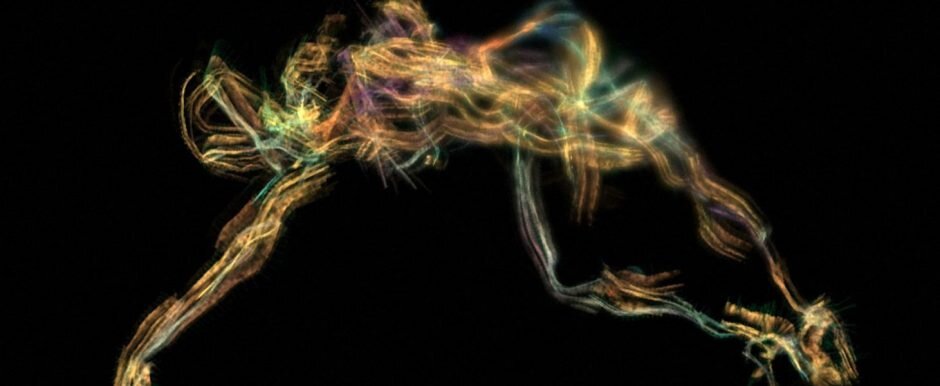
RENDERING (THE) VISIBLE III: LIQUIDITY CONFERENCE FEBRUARY 8-10, 2018
The graduate program in Moving Image Studies at GSU presents “Rendering (the) Visible” III: Liquidity,” February 8-10, 2018. Conference panels, film and dance performances, and keynote lecture will explore the concept of liquidity as an innovative critical approach to the image’s relation to space, sensoriality, and digitality, as well as an aesthetic sensibility attuned to the political ontology of motion, form, matter, and noise.

INTRODUCING LB EMPYRE
liquid blackness invites contributions to its newly released black digital study project, lb empyre, This “twine” gathers a streamlined version of a conversation that occurred over the month of April 2016 on the listserv –empyre- soft_skinned_space a global community of new media artists, curators, theorists, producers, who participate in monthly thematic discussions via an email listserv. We invite contributions to be curated and added to the original conversation, which can then continue to grow in an organic manner.

“HOLDING BLACKNESS IN SUSPENSION” FEATURED COVERAGE IN CREATIVE LOAFING
The most recent event and research project organized by liquid blackness on the films of Kahlil Joseph was covered in Creative Loafing.

WABE INTERVIEW ON “HOLDING BLACKNESS IN SUSPENSION”
Founder and Faculty Advisor for liquid blackness, Alessandra Raengo discusses our upcoming event, “Holding Blackness in Suspension: The Films of Kahlil Joseph” with WABE. Listen here.
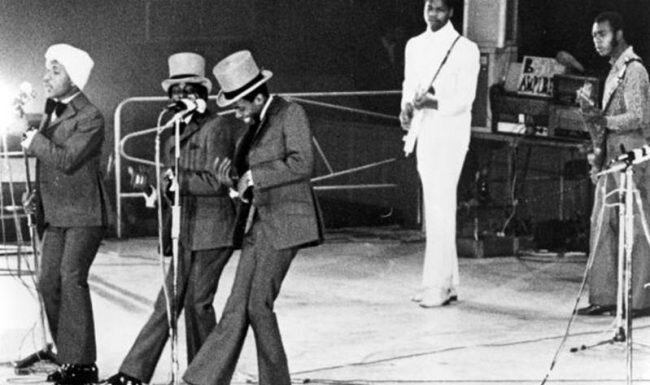
LIQUID BLACKNESS TO CO-HOST: TWO FILMS BY HORACE OVÉ, FRIDAY FEBRUARY 24TH AT GALLERY 992
Horace Ové, CBE, may be best known for Pressure (1976), the first feature film by a black director in Britain. But earlier in his career came two remarkable political documentaries produced in the wake of Black Power – one a document of James Baldwin at peak intensity, and the other an examination of reggae at the very beginning of its international emergence.
